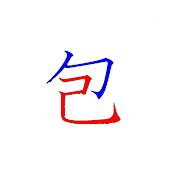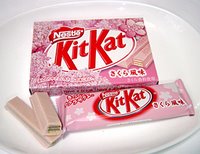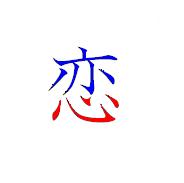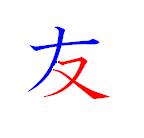
Do you remember that I wrote about 2 different meanings of “サクラ (sakura)” ?
http://nihongonihongo.blogspot.com/2006/04/he-might-be-sakura.htmlI’ve just remembered 2 another words having 2 different meanings.The left picture is a basket which you use when you are cooking.This is called ざる (zaru) in Japanese.The different meaning of zaru is a person who drinks a lot and doesn’t get drunk easily.Zaru can’t keep water at all.Those people’s stomach doesn’t keep (feel) alcohol like zaru.The right picture is a ladder.This is called 梯子 (hashigo) in Japanese.The different meaning of hashigo is making the rounds of bars.I’m not sure (couldn’t find) why we use hashigo for the action, but I guess, going to bars one after another is like going up the ladder step by step.This expression could be used for different situation, too.It’s not only for bars, but also restaurants, coffee shops etc.The way of using ざる (zaru) and 梯子 (hashigo) is popular.Try to use these expressions when you talk with your Japanese friends.“Wow! You drink a lot! You must be zaru.”“I had a terrible hangover this morning. We did hashigo last night and drank too much!”You usually use katakana when you use these words for “2nd meaning”.
 Today's kanji is 母.
Today's kanji is 母.
The blue part describes "nipples / breast".The red part describes "woman's body".
Woman with nipples. (Usually women have nipples though...)
Can you guess the meaning?
Special hint : What anniversary is today? (^o^)
See the comments page for the answer!
 Today's kanji is 泡.The blue part describes "water".The red part describes "body".The green part describes "unborn baby".Water swell like the body with unborn baby.Can you guess the meaning?See the comments page for the answer!
Today's kanji is 泡.The blue part describes "water".The red part describes "body".The green part describes "unborn baby".Water swell like the body with unborn baby.Can you guess the meaning?See the comments page for the answer!
Do you know how you call each finger in Japanese?
First, finger is 指 (yubi) in Japanese.Thumb : 親指 (oya yubi) (parents finger)Thumb is the biggest finger, so it’s like parents (…actually father).Index finger : 人差し指 (hitosashi yubi) (finger to point person)When you point someone, you use this finger.(Actually, this action is rude though!)Middle finger : 中指 (naka yubi) (middle finger)Yes, middle finger is the middle of the fingers.Ring finger : 薬指 (kusuri yubi) (medicine finger)When you use medicine (application), you should use ring finger, because you usually don’t use this finger, so the finger is the cleanest.Little finger : 小指 (ko yubi) (small finger)Little finger is the smallest finger.Also there is a different way for describing fingers for children.
Thumb : お父さん指 (otoosan yubi) (father finger)
Index : お母さん指 (okaasan yubi) (mother finger)
Middle : お兄さん指 (oniisan yubi) (older brother finger)
Ring : お姉さん指 (oneesan yubi) (older sister finger)
Little : 赤ちゃん指 (akachan yubi) (baby finger)These are cute, aren’t they? :)
How do you call fingers in your language?

There are a lot of idioms using a part of the body.Today, I’m introducing you some idioms with “hand”.Hand is "手 (te)" in Japanese.① 手を貸す (te o kasu)“To lend one’s hand”This means… “To help someone”.“手を貸してくれない?”(te o kashite kurenai?)“Can you help me?”
② 手が早い (te ga hayai)“The hand is fast”This means… “To have relationships with women right away”.“彼は手が早いから気をつけて!”(kare wa te ga hayai kara ki o tsukete!)“He wants to have relationships with girls easily. Be careful!”
③ 手が焼ける (te ga yakeru)“The hand is burnt”This means…“It’s difficult to take care of someone.”“To have a lot of trouble to take care of someone”“私の秘書は失敗ばかりで、手が焼けるよ。”(watashi no hisho wa shippai bakaride te ga yakeru yo)“My secretary makes mistakes very often. I have a lot of trouble with him/her.”Do you have similar idioms or expressions in your language, too?
 Today's kanji is 放.The blue part describes "dead person is hanged on tree for charm against evil spirits".The red part describes "hit, knock, beat".Dead person is hanged on tree and hit by people!Hope the evil spirits will...Can you guess the meaning?See the comments page for the answer!
Today's kanji is 放.The blue part describes "dead person is hanged on tree for charm against evil spirits".The red part describes "hit, knock, beat".Dead person is hanged on tree and hit by people!Hope the evil spirits will...Can you guess the meaning?See the comments page for the answer!

It's the best season for 桜 (sakura, cherry blossoms) now in Tokyo.In this season, a lot of people drink and eat under sakura trees in the park or river side.It's getting warm but still quite cold outside especially in the evening, but people try to drink in the park with coat and scarf. (^ ^;)The event is called 花見 (hanami).(Just in case... 花見 (hanami) is seeing cherry blossoms and 花火 (hanabi) is fireworks.)I did hanami last weekend with my friends, too.Do you have similar event in your country?Do you sometimes drink outside even if it's cold!?By the way, there is another meaning for the word "Sakura".Another sakura is usually written in katakana and describes people.When people are trying to sell something, if there isn't any customer, people usually don't care about the shop.But if there are many customers, you could be interested in the shop.So shops sometimes hire people who pretend customers.The people are called サクラ (sakura).They are called sakura because sakura trees seem very gorgeous and the flowers fall soon.The people try to do same thing.The way of using the word "sakura" is popular in Japanese.Try to use the word when you talk with your Japanese friends.Like..."Wow! That store is very crowded!""Well... maybe some of them are sakura, don't you think so?"
The blow 5 kanji made from their shapes.
Click the picure to expand.
Can you guess which kanji describes which picture?There is the answer in the blow explanations.
 These are simple, basic and important kanji.Japanese people learn them for first year of elementary school.These kanji almost look like pictures!Don’t you think so?
These are simple, basic and important kanji.Japanese people learn them for first year of elementary school.These kanji almost look like pictures!Don’t you think so?
By the way, the above kanji, especially 山, 川 and 田 are often used in Japanese family names because a lot of Japanese people decided their family name depend on where they lived.Do you have any Japanese friends with these kanji?These are example words including the above kanji.山 mountain山(yama):mountain富士山(fujisan):Mt.Fuji火山(kazan):volcano田 field田んぼ(tanbo):rice field田畑(tahata):field田植え(taue):rice planting口 mouth口(kuchi):mouth入り口(iriguchi):entrance口づけ(kuchizuke):kiss門 gate門(mon):gate門限(mongen):curfew門番(monban):doorkeeper, gatekeeper川 river川(kawa):river川原(kawara):riverbank, river sideナイル川(nairu gawa):Nile riverThere are a lot of kanji made from the shape.But some of them are too difficult (actually almost impossible!) to tell the meaning from the kanji.老 means "old"This kanji (should) look like old person who cannot stand straight.肉 means "meat"This kanji (should) look like meat with nerve.卵 means "egg"This kanji (should) look like eggs of fish or frog.
Hmm... what do you think!?
 Today's kanji is 包.The blue part describes "body".The red part describes "unborn baby".What does the body do for the unborn baby?Can you guess the meaning?See the comments page for the answer!
Today's kanji is 包.The blue part describes "body".The red part describes "unborn baby".What does the body do for the unborn baby?Can you guess the meaning?See the comments page for the answer!
In Japan, when parents give name for their child, they often care about the meaning of kanji which they use in the name.
As you may know, each kanji has meaning.
For example, my name Akiko is “明子” in kanji.明 means “bright” and 子 means “child” also 子 is often used in girl’s name.My parents hoped that I became a bright child.My mum’s name is Sachiko, “幸子” in kanji.幸 is happy and 子 is child, I guess my grandparents hoped that my mum became a happy child.
There are some popular Japanese names in the following list.Girl’s nameYuki 有紀 有(exist) + 紀(methodical) Hope she becomes a person with methodical ideaNatsuko 夏子 夏(summer) + 子(child) She was born in August.Kimie 喜美恵 喜(glad) + 美(beautiful) + 恵(bless) Hope she is always glad, beautiful and blessed. (What an ambitious name!!)Youko 陽子 陽(sun) + 子(child) Hope she becomes a cheerful child like sun.Boy’s nameKen 健 健(healthy) Hope he is always healthy.Tetsuya 哲也 哲(smart) + 也(“yes, it’s true.”) Hope he becomes a 100% smart person.Jiro 次郎 次(next, second) + 郎(boy) He is their second son.Ryoichi 良一 良(good) + 一(one, best, first) Hope he becomes the best boy in the world!Do you know any people having the above name?Do you think the name is suitable for the person?
How do parents decide the names for their children in your country?

 In this season, you see so many KitKat (chocolate) advertisement everywhere.Especially in trains, they sometimes have "KitKat train".They are decorated with Kitkat stickers and all the posters in the train are KitKat.The reason is that KitKat is "lucky" for candidates for highschools and unversities.In Japan, usually students take the exam in February.
In this season, you see so many KitKat (chocolate) advertisement everywhere.Especially in trains, they sometimes have "KitKat train".They are decorated with Kitkat stickers and all the posters in the train are KitKat.The reason is that KitKat is "lucky" for candidates for highschools and unversities.In Japan, usually students take the exam in February.
KitKat is pronounced "kitto katto" in Japanese."Kitto(きっと)" means "surely, certainly"."Katoo(勝とう)" means "let's win, let's pass the exam".They make posters with messages for the students like"You can do it!""You don't have to worry at all. You tried very hard!""Your parents are nervous rather than you." ...etc.Also the posters are imaged cherry blossom, so that the students can imagine spring (the season after the exam) easily.In the past, we used to eat "katsudon" for luck.(Katsudon is a pork cutlet on rice.)
Katsu (勝つ) means "to win, to pass the exam".
Maybe katsudon is old idea now...! :(Hmm... they found an interesting business chance!Is there same idea in your country?
 Today's kanji is 恋.The blue part describes
Today's kanji is 恋.The blue part describes
"It's difficult to untie tangled threads".
The red part describes "heart / feeling".The feeling is like tangled threads.Can you guess the meaning?
Special hint : What anniversary is today? (^o^)
See the comments page for the answer!
 Today's kanji is 友.The blue part describes "right hand".The red part describes "right hand", too.People who shaking hands are...Can you guess the meaning?See the comments page for the answer!
Today's kanji is 友.The blue part describes "right hand".The red part describes "right hand", too.People who shaking hands are...Can you guess the meaning?See the comments page for the answer!
Do you know which numbers are unlucky in Japan?The answer is 4 and 9.4You pronounce “yon” or “shi” for 4.For example, “yonsai” means 4 years old.“shigatsu” means April.“Shi” has some different meanings and one of them is “death”, 死 in kanji.That’s why 4 is unlucky for Japanese.9You pronounce “kyuu” or “ku” for 9.For example, “kyuusai” means 9 years old.“kugatsu” means September.“ku” also has some different meanings and one of them is “pain, suffering”, 苦 in kanji.That’s why 9 is unlucky for Japanese, too.Especially, 4 is said to be very unlucky.Usually there isn’t room numbers including 4 in hospitals and hotels.Like, room number 201, 202, 203, 205, 206…Sometimes, even floor, they don’t have 4th floor in some hospitals.Check out it when you go to a hotel for next time!Does your country have same custom?Do people avoid the unlucky numbers?
 Today's kanji is 眠.
Today's kanji is 眠.
The blue part describes "eyes".
The red part describes
"person who was stabbed his/her eyes".You don't see anything when you are...
Can you guess the meaning?
See the comments page for the answer!
Do you know that there are more than 1,000 sounds (pronunciation) in English?Compare to that, there are only about 100 sounds in Japanese.(46 sounds from あ to ん plus 25 sounds of voiced consonant like が・ぽ and 33 palatalized consonant like きゃ・じゅ・ぴょ.)Correctly, as phonetics, there are some exceptions, like ん(n) in まんが(manga) is different from ん(n) in ふじさん(Fuji-san).But basically, each hiragana / katakana always describes same sound.I think this is one of the most different points between alphabet and Japanese writing system.The good point is that if you can read hiragana / katakana, it’s easy to know how to pronounce the word and it’s only 100 sounds.The difficult point is that there are so many same or similar sound words in Japanese!Examples for completely same pronunciationKoosei : こうせい(公正) justiceKoosei : こうせい(校正) proofreadingKoosei : こうせい(構成) structureKoosei : こうせい(更生) rehabilitationKansoo : かんそう(感想) impressionKansoo : かんそう(乾燥) drynessKansoo : かんそう(完走) running the whole distanceShimeru : しめる(締める) to fastenShimeru : しめる(占める) to occupyShimeru : しめる(閉める) to closeShimeru : しめる(絞める) to strangleExamples for similar pronunciation (These pronunciations are similar, but it’s easy to tell the difference for Japanese people.)Yuuki : ゆうき(勇気) courageYuki : ゆき(雪) snowkyuuyo : きゅうよ(給与) salarykyuuyoo : きゅうよう(休養) restshugo : しゅご(主語) subjectshugoo : しゅごう(酒豪) heavy drinkerBe careful!!!shujin : しゅじん(主人) husbandshuujin : しゅうじん(囚人) prisonerBe careful!!!shoojo : しょうじょ(少女) girlshojo : しょじょ(処女) virgin girlIf you know any interesting same or similar pronunciation pairs in Japanese, let me know please!












